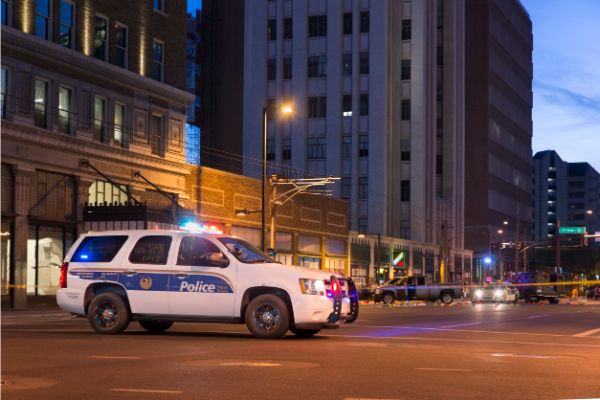Police departments are heavily involved in the transportation of people with mental illnesses. It’s a role that is stretching police departments and is not helpful for mental illness sufferers, according to a recent report.
A report by the Treatment Advocacy Center found as much as 10 percent of police budgets is spent on the transportation of people with mental illnesses. The Virginia-based nonprofit claimed the role police play in transporting mental ill people strains police budgets. It leaves many officers feeling uncomfortable and is little help to the mentally ill.

The report pointed out members of law enforcement do not serve as treatment providers for any other illness. However, they have become “road runners,” in responding to mental health emergencies and traveling long distances to shuttle people suffering from mental illness from one facility to another.
The report was published in conjunction with the National Sheriffs’ Association and the New York State Association of Chiefs of Police. It was funded by the Achelis and Bodman Foundation. Key findings included the following:
- An average of 10 percent of law enforcement agencies’ total budgets was spent responding to mental illness emergencies and transporting the mentally ill in 2017.
- The time spent transporting people with mental illness by police in 2017 amounted to 165,295 hours, or more than 18 years.
- Police took people five times further to a secure facility after a mental health crisis than when prisoners are taken to a jail or prison.
- About $918 million was spent by law enforcement on transporting people with severe mental illnesses.
- The transportation of people with mental illnesses made up more than 20 percent of police time.
- Law enforcement officers waited much longer — an average of about 2.5 hours longer — when dropping a patient off at a medical facility than if transporting someone to jail.
- Some officers waited for 72 hours or more until a bed became available.
The survey was based on the responses of more than 3,000 officers from 355 sheriffs or police departments in 2017. The problem is exacerbated by the gradual reduction in state hospital beds available to patients suffering from mental health issues.
The survey stated institutions failed to admit the patients in about half of the instances. Researchers said:
“Officers spend significant amounts of time and resources serving in a role for which they neither planned nor trained. They are forced to make decisions about where to take someone in crisis, wrestle with how long it will take to get there, and worry about the opportunity cost of leaving their regular duties, all the while knowing the person in crisis may not even receive the treatment he or she needs.”
The results of this survey are particularly worrying because people with mental illnesses are more likely to come to harm in police custody.
A survey by the Treatment Advocacy Center found people with untreated mental illness are 16 times more likely to be killed during a police encounter than other civilians who are stopped or encountered by law enforcement.
People with untreated mental illnesses comprise about 1 in 50 U.S. adults. However, people with severe untreated mental illnesses like schizophrenia are involved in at least 1 in 4 incidents and as many as half of all fatal police shootings, the center study reports.
People with untreated mental illnesses are more likely to be arrested and their chances of being bailed are lower than the rest of the population, even when they are picked up for minor issues.
At the Garcia Law Firm, our attorney has helped people with mental illness to negotiate the criminal justice system for decades. Please call Bernardo Garcia at (602) 340-1999.


